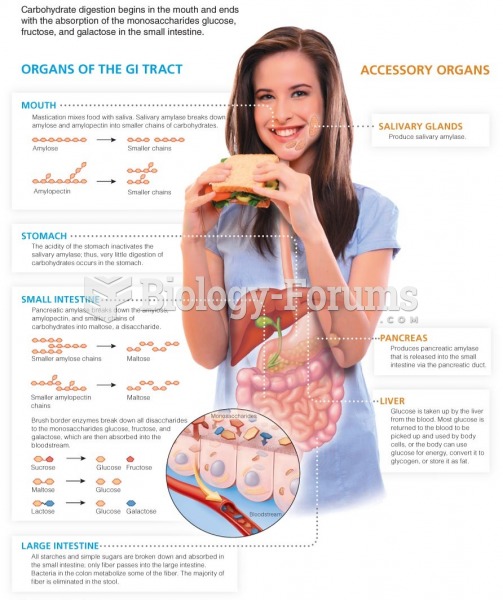|
|
|
The tallest man ever known was Robert Wadlow, an American, who reached the height of 8 feet 11 inches. He died at age 26 years from an infection caused by the immense weight of his body (491 pounds) and the stress on his leg bones and muscles.
In the United States, congenital cytomegalovirus causes one child to become disabled almost every hour. CMV is the leading preventable viral cause of development disability in newborns. These disabilities include hearing or vision loss, and cerebral palsy.
All adverse reactions are commonly charted in red ink in the patient's record and usually are noted on the front of the chart. Failure to follow correct documentation procedures may result in malpractice lawsuits.
On average, the stomach produces 2 L of hydrochloric acid per day.
In the United States, there is a birth every 8 seconds, according to the U.S. Census Bureau's Population Clock.
 An example of genetic homology: a comparison of a short amino acid sequence within the p53 protein f
An example of genetic homology: a comparison of a short amino acid sequence within the p53 protein f
 An overview of the four phases of food use in animals: ingestion, digestion, absorption, and elimina
An overview of the four phases of food use in animals: ingestion, digestion, absorption, and elimina





